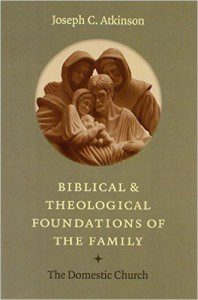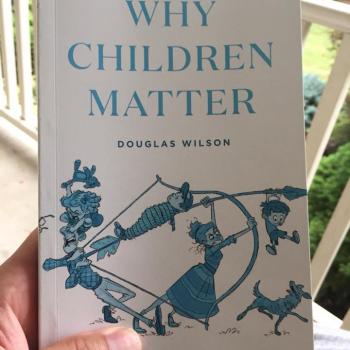Largely it is axiomatic among libertarians that human institutions are fictions and only individuals are real.
It is used as a check to the the overweening ambitions of our social engineers. To keep those people from grinding us all down to a lowest common denominator, or turning us into cogs in machinery of the Total State, we must reduce the really real to the social atom we call the individual.
But this is a false choice because the libertarians and the social engineers share a common presupposition. Each believes that nature lacks a normative structure: things don’t come with purposes. We give the world its meaning.
But that must be wrong for the simple reason we are not really atoms at all. We’re social creatures by nature. We come with hooks and barbs and we cling.
Aristotle called us political animals. He didn’t mean we’re those creatures you run into on line who look with bloodshot eyes at their news feeds and spew out status updates and tweets in a never failing stream about the very, very latest thing that Trump did.
What he meant is human beings live in ordered communities. Anything else is would either make us gods or beasts.
This puts Baptists in a tough spot, because in the Christian world they are our libertarians. They pretty much think we’re all Adam freshly formed from the ground (except for the original sin thing) and we’re only duty bound by gratitude to God himself (if we so choose to be, oddly). If they didn’t think this way they’d baptize their babies.
Infant baptism is predicated on the truth that the cords that bind families together exist naturally and are there before we even know what it means to be an individual. You could say they’re more real in a way than individuals can ever hope to be. They make us who we are.
That may be heresy in the American religion, but when it comes to Christianity it is the way it has always been. And this is due to the fact that this is also the way Jews have looked at things in their own faith, and recall, Christians according to Paul have been grafted into Israel. What distinguishes Christians from Jews is not their understanding of what it means to be an individual. What distinguishes them is whether or not Jesus is the Messiah. For Jews the most important thing is being in Abraham, that makes you an heir of the Covenant promises. But Christians believe that Jesus is the true child of promise an the rightful heir of all the promises made to Abraham. Therefore being in Christ makes you Abraham’s heir.
The thing to consider when it comes to baptism is this: did those Jews and Christians know something we have forgotten? If you can accept that they did, not only will you look at infant baptism favorably, you will understand the Bible better. (You’ll also begin to understand why the whole modern obsession liberation is dangerous.)
 As readers of this blog know, I’ve been working my way through Joseph Atkinson’s, Biblical and Theological Foundations of the Family. Concerning the matter addressed above, here are a few excepts as they apply to baptism.
As readers of this blog know, I’ve been working my way through Joseph Atkinson’s, Biblical and Theological Foundations of the Family. Concerning the matter addressed above, here are a few excepts as they apply to baptism.
The manner in which Abraham functioned in the New Testament is once again reflective of the Semitic understanding of corporate personality which is foundational to Hebrew anthropology. Each family, tribe, or nation had its originating point in a single father to whom was given the covenant. All that sprung from Abraham is organically connected to him….
But we can also see how deeply this concept of corporate personality and its emphasis on organic unity continues to inform other realities in the New Covenant. The highest expression of this is found in the complete identification of the believer with Christ. (p.220)
Again, Atkinson dealing here with the libertarianism of the west explicitly;
The human person is not an autonomous, self determining entity, and neither is the family. The idea that a profound experience such as conversion to Christ could only affect an individual without affecting those with whom the person is ontologically connected (i.e. his family) is not possible within the Semitic mindset, which is also operating within the early Church. (p.225)
The correlation between circumcision (the mark of the Old Covenant) and baptism (the mark of the New) is a standard argument used by advocates of infant baptism. But Christian libertarians seldom find it persuasive largely because they assume that John the Baptist was a libertarian. But he wasn’t–and such a creature did not exist in the Church until recently.
For a paterfamilias in the first century, whether Jew or Greek, the idea that a man’s household didn’t convert when he did would have been unthinkable. Here’s Atkinson quoting Joachim Jeremias,
…when we consider family solidarity resting upon the authoritative influence of the head of the family it is scarcely conceivable that the baptism of a ‘household’ did not include all its members. (p.251)
And further, (this time Atkinson in his own voice):
…it would be virtually impossible for first century Jews to reject baptism of their children out of some regard for the autonomous rights or a novel belief in individualistic salvation. This would run counter to the Jewish experience of the covenant. (p.251)













